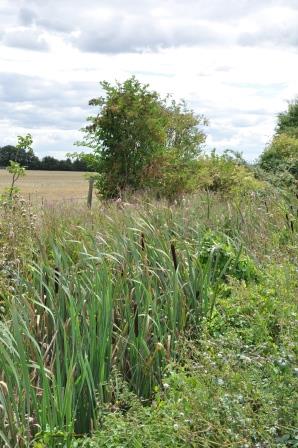Research
Freshwater biodiversity on farmland
Freshwater resources are of vital importance in sustaining human populations and activities. The biodiversity of freshwater systems in agricultural land can be negatively affected by agricultural activities. The impact of land use and agricultural activities on biodiversity at two scales was investigated. Firstly, how the amount of different land-use types surrounding streams and rivers at the entire catchment scale can affect the quality of freshwaters, as measured by macroinvertebrate indices. Secondly the study looked at how adjacent land use and management affected the water quality and biological communities of agricultural ditches, often the first concentration points of water running off from agricultural land. We have demonstrated that targeting management, such as increasing woodland close to river banks and managing hedges next to ditches, could have beneficial effects on the water quality and biodiversity of freshwater on agricultural land.
Rosalind F. Shaw
Alison E. Poole
Ruth E. Feber
Eva M. Raebel
David W. Macdonald
References
Shaw, R.F., Poole, A.E., Feber, R.E., Raebel, E.M., Macdonald, D.W. 2015. Freshwaters and farming: impacts of land use and management on the biodiversity of rivers and ditches. In: Wildlife Conservation on Farmland. Eds: D.W. Macdonald & R.E. Feber. Oxford University Press.
Shaw R, Macdonald DW, Johnson PJ, Feber RE. 2015. Enhancing the biodiversity of ditches in intensively managed UK farmland. PLoS ONE 10(10): e0138306. doi:10.1371/journal.pone.0138306
Poole AE, Bradley D, Salazar R and Macdonald DW. 2013. Optimising agri-environment schemes to improve river health and conservation value. Agriculture, Ecosystems and Environment, 181, 157-168.
-
 © Ruth Feber
© Ruth Feber





